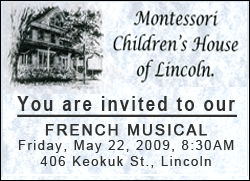 Teacher certification and recertification Teacher certification and recertificationWhen a young
person makes a decision to become a teacher, he or she is making a
commitment to a life of continuing education.
A beginning teacher possesses an initial certificate, good for
four years; it must be renewed until that teacher has completed the
requisite professional development option and has taught four full
years. (The four years of teaching can be earned in more than one
district.) At the completion of four years of teaching, the teacher
must apply for a standard certificate, which must be renewed every
five years.

Ongoing studies must focus on at least one of five purposes:
-
Acquire advanced
knowledge and skills consistent with the Illinois Professional
Teaching Standards and the Illinois Content Area Standards in
the certificate holder's area(s) of certification, endorsement
or teaching assignment.
-
Develop knowledge
and skills in the state priorities (special education,
mathematics, technology, standards and assessments, reading)
-
Address the
knowledge, skills and goals of the local school improvement plan
if employed in an Illinois public or state-operated school,
cooperative or joint agreement with a governing body board of
control.
-
Expand knowledge
and skills in an additional teaching field or toward the
acquisition of another teaching certificate, endorsement or
relevant education degree.
-
Address the needs of serving students
with disabilities, including adapting and modifying the general
curriculum related to the Illinois Learning Standards and
serving such students in the least restrictive environment.
Special education teachers must devote at least 50 percent of
their continuing professional development activities to this
purpose. Teachers holding other certificates must devote at
least 20 percent of their activities to this purpose.

Initial certification and recertification of teachers is a
responsibility of the regional superintendent of schools. Anderson
says that teachers acquire their ongoing education in a variety of
ways. They can take classes throughout the school year, which might
be online courses or attending night school; some take full courses
during summer break; and some do all of the above.
Mid-Illini Educational Cooperative
The Mid-Illini Educational Cooperative is the professional
development arm of three Regional Offices of Education. The goal of
the cooperative is to provide resources for continuing education,
keep up with the latest trends and best practices in education, and
communicate that through training and assistance to the school
districts.
The Mid-Illini Educational Cooperative is a cooperative between
regional offices 38, 22 and 53, which consist of Fulton, Logan,
Mason, Menard, Schuyler and Tazewell counties.
Anderson is on the executive board of the cooperative and says
that because two of the regional offices were small, they were
required to form a cooperative that could combine resources and
offer a better program in all three regions.
Through the cooperative, teachers can attend workshops on
specific topics, take online courses for their continuing education
and interact with other teachers in the same area of expertise.
"We are moving away from the ‘one-hit wonder' workshops for an
hour after school," Anderson explained. "We're trying to provide
more on-site assistance and technical assistance to schools."
The Mid-Illini Educational Cooperative offers a public Web site,
listing the resources available to those in the teaching profession.
Anyone can view this information by using this link:
www.mid-illini.org.

Homeless children in Logan County
The McKinney-Vento Act began as the McKinney Act in 1987 and was
reauthorized as part of the No Child Left Behind Act in January of
2002. It defines homelessness, as related to meeting educational
needs, as follows:
"Individuals who lack a fixed, regular and adequate nighttime
residence; children and youths who are sharing the housing of other
persons due to loss of housing, economic hardship or similar
reasons; are living in motels, hotels, trailer parks or camping
grounds, due to the lack of alternative adequate accommodations…"
(This is a partial definition. To read the full act, visit the
National Center for Homeless Education site at
http://www.serve.org/nche/m-v.php.)
[to top of second column] |

Anderson says that, in this area, homelessness can be a somewhat
hidden issue. "It is not a matter of parents and children living on
the street, but rather that they have, for whatever reasons,
experienced a transition in their lives and are no longer able to
provide what they have in the past for the family," she says.
For children and youth who meet the act's definition of
homelessness, the Logan-Mason-Menard Regional Office of Education
offers a program through a sub-grant from an area grant administered
by Regional Office of Education 26 (Hancock and McDonough counties).
The region employs a homeless liaison, Darrell Sisk, whose duties
include networking with appropriate social service agencies, schools
and community programs in order to provide services to families,
children and youth who are considered homeless under the definition
of the act.

The regional liaison also assists a designated liaison from each
school district throughout the region, providing them with support
or in-service. He also meets regularly with several community
service agencies and organizations.
"The homeless liaisons, through this act, are empowered to do,
basically, whatever it takes to get children enrolled in and
attending school," Anderson says. "Children are not going to be
successful in this world unless they have an education."
This may include getting children enrolled without the mandated
paperwork, such as birth certificates, immunization records and
physicals.
She explains that, in a case of eviction or other emergency
situation, parents may not have time to get everything they might
need to enroll a child in a new school. It may come down to their
"grabbing what they can lay hands on as they run out of the door."
Anderson stresses the importance of having a child's records. The
Missing Children Registration Law, 325 ILCS 55/5(b), requires
any person enrolling a student in an Illinois school to produce a
certified copy of the child's birth certificate or "other reliable
proof, as determined by the Illinois State Police." This law, which
was enacted in 1986, was created to protect children, as the
inability to supply the appropriate records or provide an acceptable
reason as to why they are not available may be an indication that
the child has been taken unlawfully from his or her home and family.
In the case of families in transition, once a child has been
enrolled, the liaison can assist the parents in getting the
necessary documentation in a timely fashion and, if needed, at no
cost to the parents.

In this tri-county region, she says that under the definition of
homelessness, approximately 180 people were provided with some level
of assistance last year by the regional or district liaisons.
One of the things that may complicate a child or family's
opportunities for assistance through the homeless program is the
fact that, sometimes, a new living environment may actually be
better for a child than his or her previous situation. When that
happens, both the family and school personnel may not realize that
eligibility for homeless assistance exists, even though the new
environment meets the definition of homelessness under the law. A
fairly common example is when children move in with grandparents or
other family members to enhance the family's stability or
productivity. However, the appearance that a family in transition
might, on moving, now have access to an income and a nice home does
not eliminate schools' responsibilities to the affected students.
She says that one of the first benefits to a child is the free
lunch program. "In some instances, that may be the only meal a child
might get during a day," she says. "In other situations, it might
mean one less responsibility to the grandparent, who might be on a
limited income."
Textbook rental fees are also waived on enrollment, and families
are referred to social service agencies, when appropriate.
To learn more about the Logan-Mason-Menard Regional Office of
Education, visit
http://logan.k12.il.us/roe38/.
[By NILA SMITH]
Part 1 of series:
Regional Superintendent of Schools Jean Anderson offers insight
on the duties of the office |